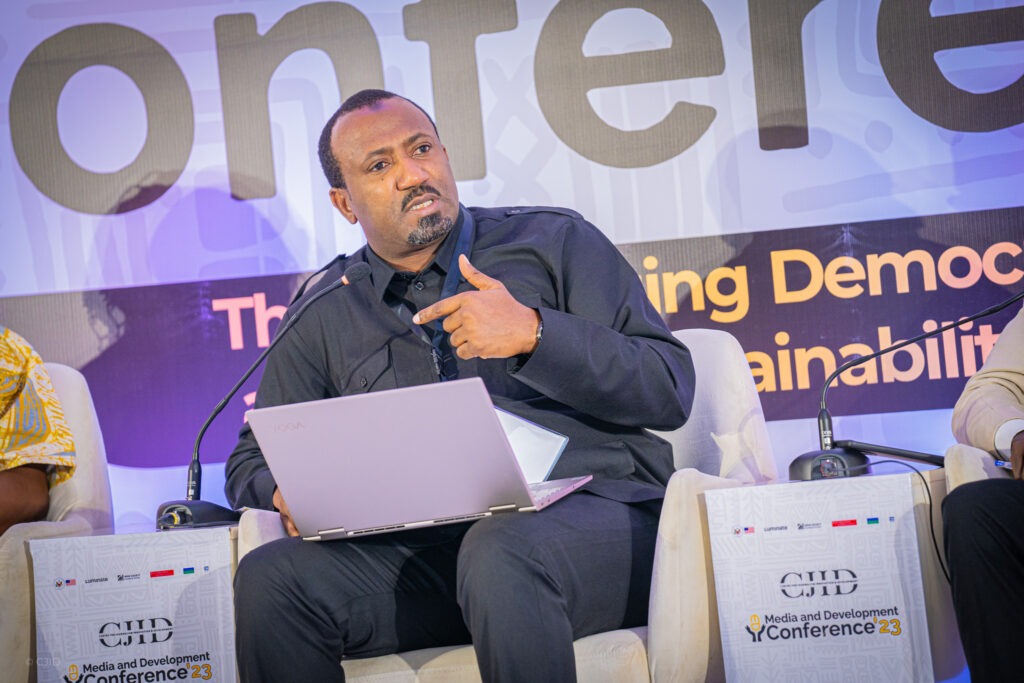At a panel session moderated by the Executive Director of the Center for Fiscal Transparency and Integrity Watch, Umar Yakubu, stakeholders have highlighted the path towards sustainable and constructive financing in the continent.

The conference organized by the CJID with the theme: “Bridging Democracy, Innovation, and Media Sustainability in West Africa ” saw conversations on ways to improve governance on the continent.
Background
The impact of foreign investments on economic growth and development in Africa, as well as the associated risks concerning governance, transparency, and equitable wealth distribution, are a growing concern given the recent backlashes associated with loans from China in some African countries.
The panel, which discussed “Corrosive and Constructive Capital Inflow in Africa: Regulatory Frameworks and Governance Gaps” delved into the complexities of capital inflow in Africa, focusing on ways to mitigate the inflow of corrosive capital, which continues to impact on the continent’s socio-economic landscape.
Panel Insights
Discussants highlighted the need for political and economic leaders in the continent to urgently work out and adopt ethical business practices and prioritize environmental sustainability, by emphasizing transparency, due process and public participation for responsible financing practices.
The session also called on governments to be intentional about what capital inflows, especially loans, are used for (needs-based capital), ensuring that such inflows are only used for capital expenditure that’s sustainable and rewarding. It called for the strengthening of institutional capacity to monitor and ensure accountability of inflows.
The lack of transparency in the project award process and the jettisoning of the procurement processes, as in the case of Chinese loans, with improper documentation should be frowned at; and leaders were urged to enhance national capacity to mobilize resources as a means of addressing inflow of detrimental (or corrosive) investments.
Furthermore, the panel, while calling on governments to encourage the participation of communities, civil society organizations and media for effective monitoring and independent assessment, it urged leaders to work towards an attractive and sustainable investment environment for beneficial funding, so as to also avoid detrimental clauses that sometimes threatens national sovereignty.
The need for the passage of the Whistleblower bill which will enhance transparency, accountability and curb abuse of power by government officials was underscored, with the public urged to join the advocacy for the legislation that will protect whistleblowers and mobilize the citizens in the fight against corruption.

